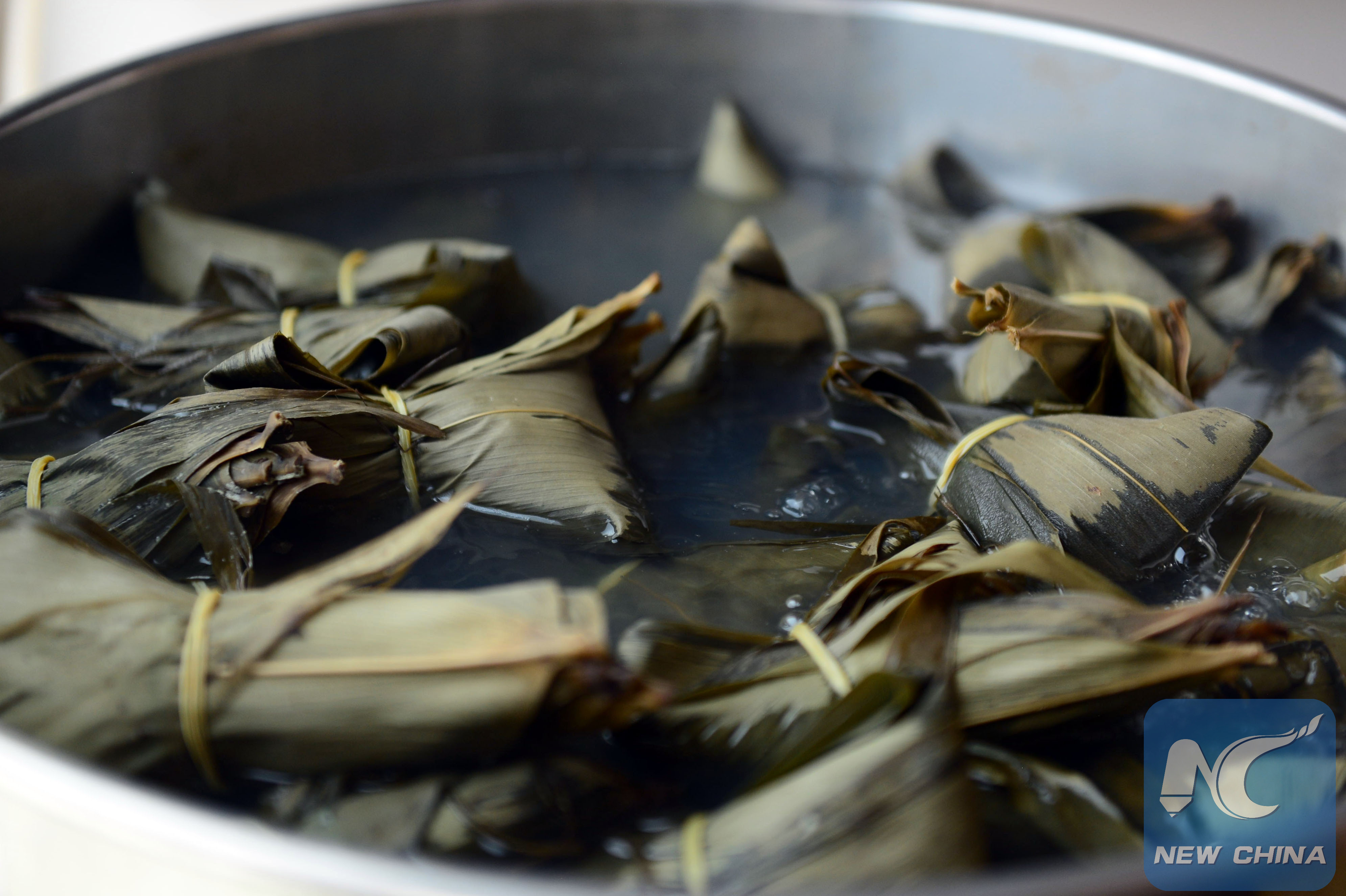
Abdu Nazir is pouring syrup on an unwrapped Zongzi.
KASHGAR, May 29 (Xinhua) -- It's a season for sticky rice dumplings even in the far-flung ancient town of Kashgar, where no sticky rice grows.
As people across most parts of China are marking the Dragon Boat Festival with the seasonal food called Zongzi, Uygurs and other ethnic minorities in Kashgar, Xinjiang Uygur Autonomous Region also take fancy to the pyramid-shaped dumpling wrapped in bamboo or reed leaves. Local people enjoy its sweet taste.

Residents in Kashgar enjoy the sweet taste of Zongzi.
The Dragon Boat Festival, called Duanwu in Chinese, is on the fifth day of the fifth month on the traditional Chinese lunar calendar. The festival in memory of an ancient poet called Qu Yuan falls on May 30 this year. The most widespread activities marking the festival include having Zongzi and racing dragon boats.
No one knows when and how Zongzi came all the way from riverside Han ethnic communities in eastern and southern China to the largely Muslim town on the verge of the Taklimakan Desert in Xinjiang.
However, as a vendor named Abdu Nazir in the Bazaar of Khans puts it, "What matters is not when Zongzi came but the fact that people here like it."

Tourists are tasting Zongzi with yogurt and syrup.
For centuries, the Silk Road prompted trade between the East and the West. As an important town along the ancient trade route, Kashgar has also been a melting pot of different food cultures.
As the sun sets, the Bazaar of Khans, or the King's Bazaar, awakes from the day's stifling heat and is about to embrace the hustle and bustle of a night life. In no time, the renowned night market will be packed with people strolling around from one snack stall to another, with alluring aromas pervading in the air.

Abdu is selling Zongzi at the bazaar.
During summer, Abdu Nazir can sell 300 Zongzi at most a day. In other seasons, the sales will drop but the man can still make half of it. Like other places in China, Zongzi now can be found in bazaars in Kashgar in most time of the year except in winter, no longer only for the Duanwu festival or summer.
The way people in Kashgar eat Zongzi varies from other places. They like to have it with yogurt and syrup, and sometimes with sauces like fig or rose jam.
Abdu Nazir makes Zongzi in the morning every day at home, and takes them to the market late in the afternoon when the hot boiled dumplings cool down. When the weather gets hotter, he will put them in ice buckets.

Abdu Nazir is wrapping up Zongzi at home.
In traditional Chinese medicine, the glutinous rice is regarded as a wholesome ingredient which helps keep the liver and stomach warm. Uygurs hold similar belief.
"Sticky rice is good for health. For those who have loose bowels, a Zongzi or two may help dispel their trouble. Besides, Zongzi together with yogurt and jams can help better digest food," Abdu Nazir says.
Abdu Nazir was a street vendor before he started his business in the bazaar a year ago. By selling the sticky rice dumplings, the man with physical disability can earn more than 2,000 yuan (more than 300 U.S. dollars) a month.
Deep in the night, lights in Kashgar are dimmed, and the Bazaar of Khans returns to its former peace as tourists disperse. Abdu Nazir packs up his stall with a smile on his face. Tomorrow, he knows, will be another busy yet sweet day.
(All photos by Ma Kai)

